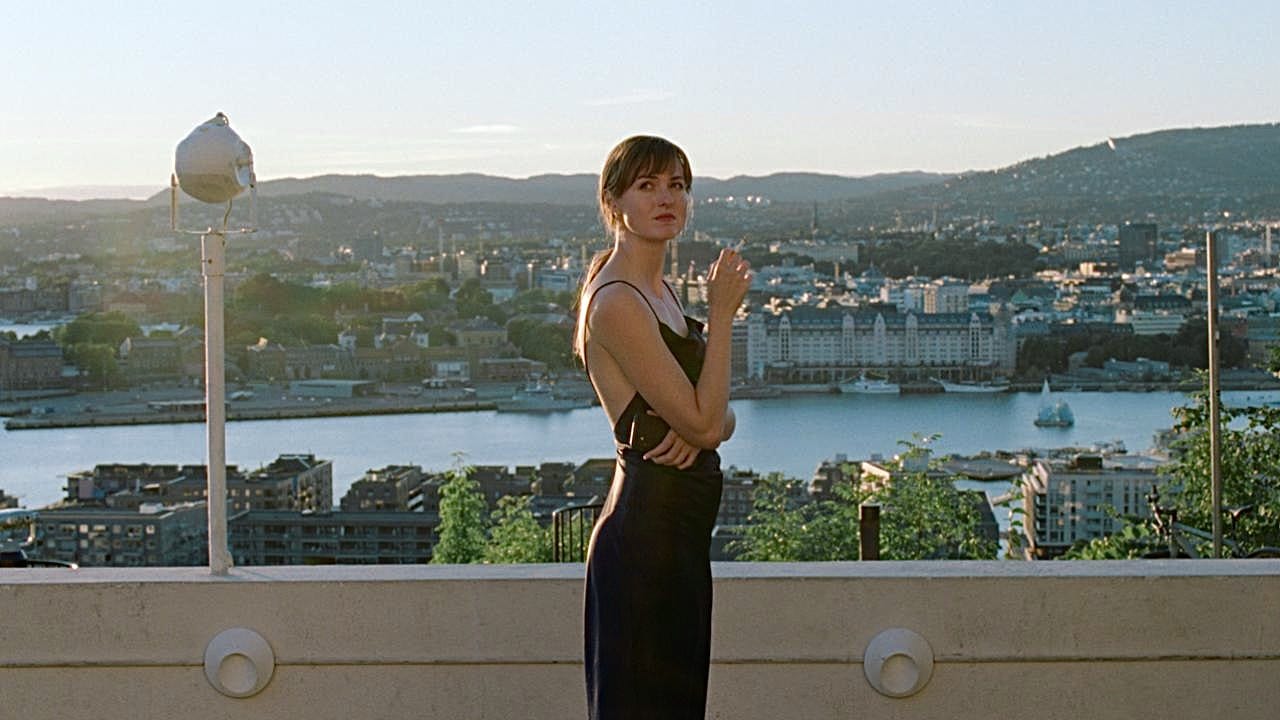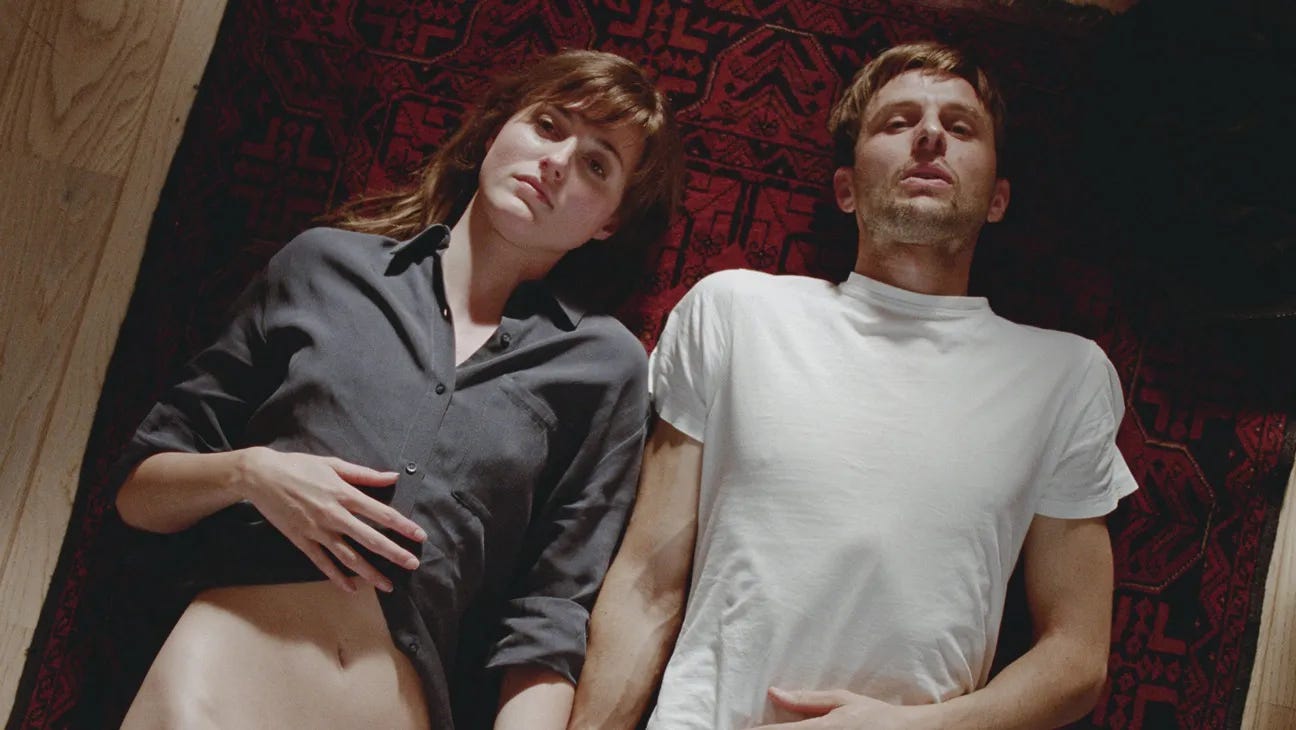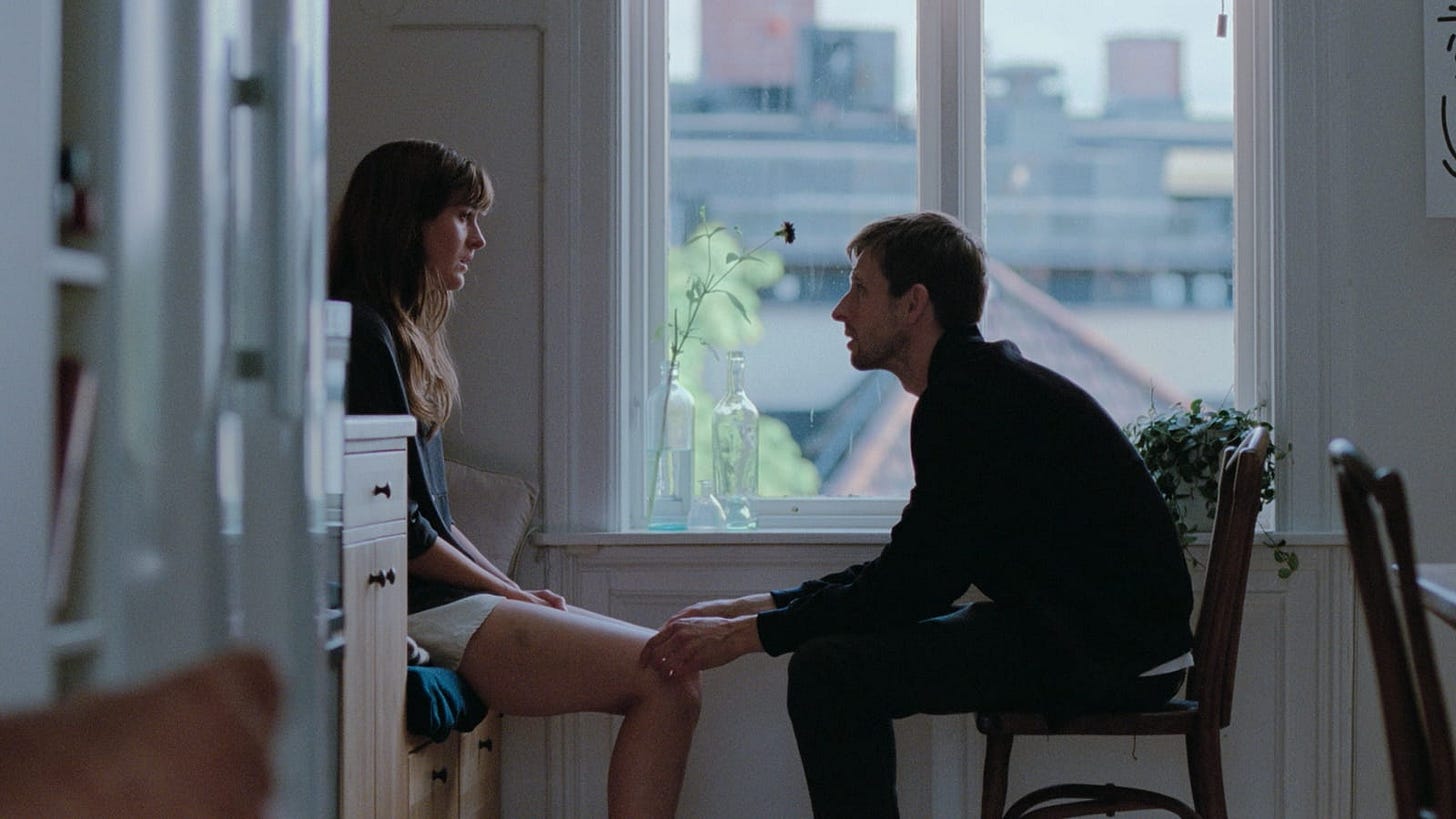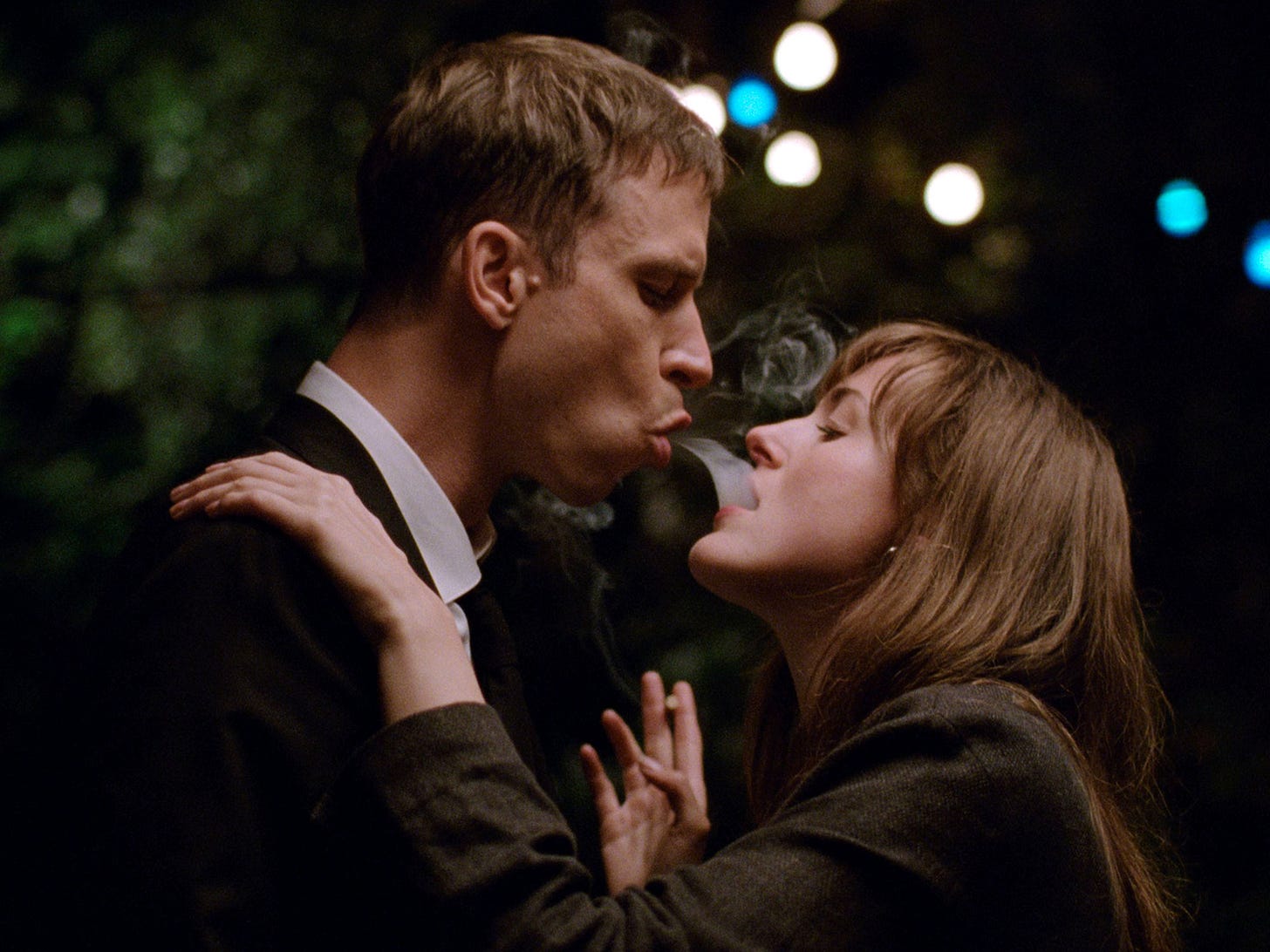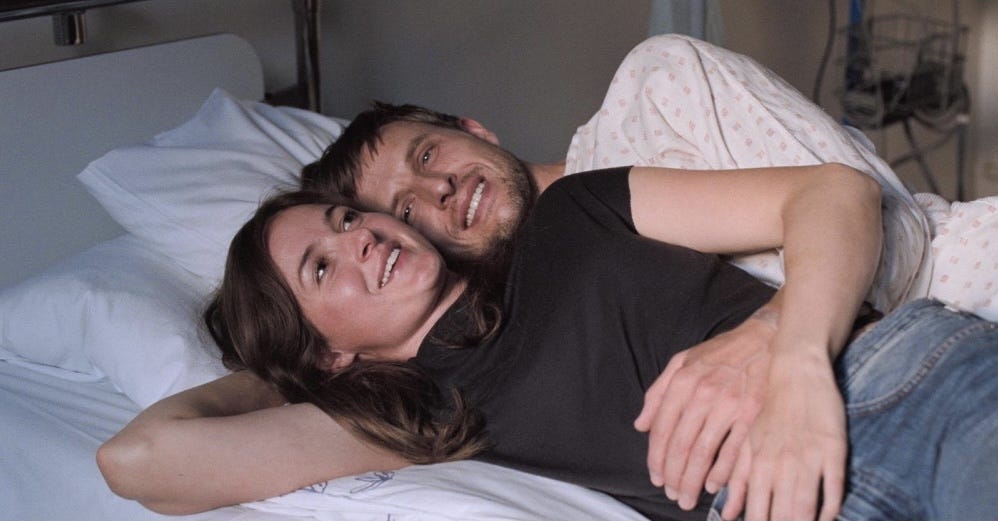Am I the worst person in the world, or am I just 27?
Facing my late-twenties existential crisis, with a little help from The Worst Person in the World
I was five months into my twenty-seventh year, the year I am still in, when I first watched The Worst Person in the World. I’d been avoiding the movie for months. It had been recommended to me countless times, but I couldn’t bring myself to watch it. Cursory Google searches about the film led me to believe it was too closely tied to the questions I had been avoiding about my life. A friend had also warned me it was “too real” and that it cut close to the bone—too close, actually—so I knew I wasn’t in the right headspace to watch it, let alone face my questions.
But that night, something shifted. I needed to face the uncomfortable truths I’d been avoiding. “Prepare yourself,” my friend warned me when I texted her that I was finally watching it. “Only watch it if you’re feeling emotionally stable. Otherwise, you’re just asking for a gut-punching, earth-shattering self-reckoning.” I wasn’t exactly emotionally stable or ready for an existential wake-up call. But I watched it anyway—and God, am I glad I did.
MY EXISTENTIAL CRISIS COMES TO ME IN NORWEGIAN AND HAS ENGLISH SUBTITLES
The night I watched The Worst Person in the World, it was late, one of those quiet nights where the city outside hums at a distance, and you’re left alone with your thoughts. The kind of night where you can feel the weight of the day settle into the sinew of your body, where the silence amplifies all the uncertainties you’ve been pushing away. As I sat in my living room in London, a tiny voice inside my brain kept whispering, “Now, watch The Worst Person in the World now,” over and over as I hovered over the ‘Play’ button, poised to re-watch Bridget Jones’ Diary for the zillionth time.
At the time, I didn’t really know what to do with myself. I felt restless, listless—like I was floating through the motions of my life without any real sense of direction. I was a few months out of a breakup, still nursing the wounds of a relationship that had fallen apart in ways I was only just starting to understand. The edges of the breakup were still sharp, and I’d been trying to smooth them over with distractions—dating apps, drinks with friends, endless episodes of Sex and the City. But nothing was really working. I kept wondering: had the relationship failed because I didn’t know what I wanted—or worse, because I had chosen the wrong thing entirely? It’s a haunting question, one that had been lingering for a while, wedging itself into the recesses of my brain.
This uncertainty deepened the void I was already sinking into and made the gnawing fear of indecision feel like my undoing. Though I had just started seeing someone new, I was hesitant about the prospect of dating again in general, unsure if I was ready for anything serious. I wasn’t even sure what ‘serious’ meant to me anymore.
But I did at least know that I wanted to do something different, see something that could change me, or at least try to. So, instead of taking the road more traveled with Bridget, Mark, and the particularly rakish Daniel, I settled in for what would eventually become a late-night Norwegian existential crisis with English subtitles alongside Julie (Renate Reinsve), Aksel (Anders Danielsen Lie), and Eivind (Herbert Nordrum).
What I didn’t realise at the time was that this film would become a mirror to everything I had been feeling but wasn’t quite ready to confront. It didn’t just challenge me to sit with those uncomfortable thoughts—it practically demanded it. And, honestly, I wasn’t sure I was up for the task. But as soon as the film began, I knew there was no turning back.
HELP! I’M 27 AND STILL DON’T KNOW WHAT I WANT
My friend was right. The Worst Person in the World did cut close to the bone. It’s not just the kind of movie you watch and forget; it’s the kind that forces you to sit with yourself, to contend with your own decisions, doubts, and desires. It leaves you with that quiet, lingering sense of reflection, the kind that creeps up on you unexpectedly, like when you’re washing your hair in the shower or staring out of a bus window on your way back from a party, and you find yourself replaying in your head a scene from the film that felt too real.
I have spent so much of my twenties worrying about whether I’m on the right path, whether I’ve been making the right decisions about my career, my relationships, my future. I’d always assumed that at some point I’d just know, that clarity would magically arrive, and I’d wake up one morning certain of everything. This made the heavy weight of indecision that oozes from every scene of The Worst Person in the World not only relatable—but also absolutely terrifying. The idea that I might never find the answers—or worse, that I might be stuck in this limbo forever—was unsettling in a way that felt far more permanent than I wanted to admit. It’s one thing to think uncertainty is just a phase, but it’s another to realise it might be a permanent fixture in your life.
MY INDECISION HAS PINNED ME TO THE FLOOR AND PUT ME IN A HEADLOCK
Watching Julie on screen was like watching a reflection of myself, and it scared me more than I wanted to admit. She was grappling with the same uncertainty, the same questions that had been pinning me down for years. There’s a moment when Julie admits she doesn’t know what she wants, and it felt like she was reading my mind, holding a mirror to the exact thoughts I’ve been wrestling with. Here was this woman, in the exact same position as me—approaching 30 (I’m 27), living in Oslo (I’m in London), and without anything figured out (same, girl). She’s still wrestling with those unanswerable questions, caught in a headlock of indecision, just like me.
Also like me, Julie is caught in the uncomfortable space between what society tells you your life should be and what you actually want it to be. Watching her constantly on the verge of a big decision, only to pull back at the last minute, was a punch in the gut. It’s not about being afraid of commitment; it’s about being afraid of making the wrong choice. And that fear isn’t just about love; it’s about everything—work, family, life choices. Women, in particular, I’ve found, feel that ticking clock, reminding us that our time to “figure it all out” is running out.
But what if I never figure it out? What if, like Julie, I’m destined to always be figuring it out? What if there’s no point in time when everything suddenly clicks into place? What if I’m still allowed to be uncertain? These were the questions I kept returning to as I watched. It was both a comfort and a crisis to realise that maybe, like Julie, I’m not supposed to have all the answers and know what to do. Maybe being in this late-twenties void, as unnerving as it feels, is exactly where I’m supposed to be.
WELCOME TO THE VOID, IT’S NICE SOMETIMES BUT IT’S MOSTLY JUST WEIRD
The thing about the void is that it’s not comfortable, but it’s not necessarily a bad place to exist either. It’s strange at first, floating in this in-between space. There’s a quiet discomfort to it, like walking into a fog where nothing feels solid. But the longer I linger, the more familiar it becomes—almost comforting in its discomfort. The void quietly dares you: let go of the idea that everything needs to be sorted by a deadline. It’s a place where you’re allowed to be unsure, to sit with the unknown, and maybe even sit with the uncertainty for longer than feels comfortable.
The void is a strange place to exist—not necessarily filled with confusion, but with a kind of suspended uncertainty. It’s like living in the middle of a Venn diagram: one side is who you’re expected to be—stable, successful, certain. The other side is who you might want to be—free, creative, in flux. And somehow, I’m caught in that overlapping space where neither version feels fully possible or fully satisfying. It’s a place where everything is up in the air, but the world keeps demanding that you pull it down to earth, define it, make it something real. But how can I make a choice when I’m not even sure I want what I’ve been taught to want? How can I make a choice when my heart and mind are at odds with the expectations laid out for me?
There’s an invisible pressure that comes with your late twenties. It tells you you’re supposed to have it all figured out by now. That you should have chosen your path, locked in your choices, and started building the ‘right’ kind of life. But that pressure weighs heavily, especially when the path ahead still feels unformed.
In the void, every decision feels monumental, like each choice closes a door to something else. And instead of excitement about the possibilities, I’m sometimes left feeling paralysed by the weight of it all, the pressure of walking through the ‘right’ door.
SHOULD I BE GETTING MARRIED AND HAVING BABIES RIGHT NOW OR AM I STILL ALLOWED TO GO OUT DANCING AND MAKE TERRIBLE DECISIONS THAT ARE HONESTLY JUST, LIKE, REALLY FUN
This internal battle between societal expectations and personal desires was nowhere more apparent than in Julie’s relationships. It’s a familiar struggle for me too—her relationship with Aksel reminded me of the times I’ve felt pressure to want the ‘right’ things, even when my heart wasn’t sure. Aksel knows what he wants—he’s ready for kids, ready to settle down, and he wants Julie to follow him down that path. There’s a part of me that craves that kind of certainty, the security of knowing someone has it all figured out for both of you. But, like Julie, I’m not ready for that life yet.
The timeline society sets—date sensibly, settle down, have kids by 30—haunts me like a deadline I’m destined to miss, always just out of reach no matter how much I try to meet it. I see the milestones approaching, like signposts on a road I’m not sure I want to be on. They loom in the distance, making me feel like I’m heavily delayed even though I’m still trying to figure out what road I’m supposed to be on in the first place.
What comprises all of these things is a provoking, gaunt shadow—is it future me? is it the ghost of expectations past?—who whispers that I’m falling behind, its voice growing louder the closer I get to 30.
“What happens when the life you’re supposed to want doesn’t match the life you actually want?”, I sometimes ask the shadow.
“I don’t know,” the shadow softy replies in my ear. “But have you thought how will you navigate the guilt and the fear that maybe you’re doing it all wrong?”
The shadow’s whispers leave me with a gnawing tension, like a weight pressing down on my chest. The closer I get to 30, the more suffocating it becomes, reminding me that time isn’t on my side. As I watch friends move in with partners, get engaged and then married, I feel a growing sense of urgency that I’m missing a crucial step—like I’m standing still while everyone else is moving forward on some invisible timeline.
Watching Julie wrestle with these same issues and choices borne from the same whispers from the same, nebulous shadow reminded me of my own recent relationships with Will* and Max*. Will, like Aksel, is reliable and steady. Almost 30, he runs his own law practice. He is responsible, grounded, from a ‘good’ family—kind of person at whom almost everyone around me would nod approvingly. The kind of person with whom I could build a life—a nice life. But there’s something about the life Will represents, my life with him—so stable, so normal—that makes me feel like I’m standing outside of my own body, watching someone else live inside it.
Most of Will’s friends are either married or engaged to be; he knows what RinseAid is. He gets regular haircuts and goes to a tailor. He’s the embodiment of a life that looks great on paper, the safe choice. But that’s exactly where the tension lies. I know Will offers the kind of stability I should want—just like Julie knew Aksel was the ‘right’ choice—but it doesn’t stop me from feeling unsure. ‘Stability, yes,’ I think to myself, ‘but at the cost of excitement, of feeling alive?’
Then there’s Max, my Eivind, an artist who brings a creative energy, a fire that makes everything—every part of me—feel more alive. He’s unpredictable, sure, but it’s the kind of unpredictability that pulls you in. Oh, Max. Max, with his corduroy Carhartt pants worn at the knees, his earring, and his mullet, exists on the fringes of the society that Will has so gracefully mastered. He sends me long emails instead of texts; he reads me headlines about alien abductions. He lives just two hours outside London in a dingy house with dodgy, grey-haired Romanians and pays just enough in rent in order to fund his endless supply of paint and looseleaf tobacco. None of his friends are married.
And yet, Max lets me breathe in a way I didn’t know I needed. With him, I can exist in the moment, let life happen without forcing it into neat little boxes—or, maybe more honestly, without feeling like I have to have any boxes at all. Julie’s hesitation with Eivind was never about the lack of love, but about whether love alone was enough to navigate the uncertainties of the future—and I often find myself grappling with that same question, a voice in the back of my head asking, ‘But how long can this really last?’
My apprehensions about both Will and Max sum up my internal battle, my insides drawn and quartered as I am pulled between my desire for certainty and yearning for something intoxicatingly unpredictable.
WHEN LIVING IN THE VOID, STABILITY IS NICE BUT THE SPARK IS SEXIER
Watching Julie wrestle with these choices felt like watching my own inner conflict. Will represents stability, security—the kind of life that should feel like the ‘right’ choice, the one that pulls you out of the void and into something settled. But is it enough if it doesn’t feel electric—or, frankly, sexy? And Max represents passion and unpredictability—everything that makes life feel alive and uncertain, but he also keeps me tethered to the void, where nothing is clearly defined.
And it really is this unpredictability that keeps me shackled to the void—because if I don’t stay in it with someone like Max, I often wonder if I’ll lose myself in the mundane with Will. (And then, sometimes, when I’ve been electrocuted by Max and his ways one too many times, my limp body circling the void’s drain, I wonder if I maybe really wouldn’t mind the mundanity, after all.)
The void pulls me in two directions—stability on one side, excitement on the other—and no matter which way I lean, it feels like I’m sacrificing something important. Maybe that’s what the void really is—a place where no decision feels satisfying because choosing one thing means giving up another version of yourself.
MY BRAIN’S ON AUX AND IT’S PLAYING ‘I think about it all the time’ BY CHARLI XCX ON A LOOP
Then there’s time. Julie is constantly grappling with the pressure to make decisions about her future, especially around motherhood. The clock is always ticking—on career choices, on relationships, on starting a family—and that sense of time slipping away is something I feel as I approach 30. The fear of running out of time, of making the wrong decision, of closing off paths forever is exhausting. It’s like there’s this invisible deadline looming over every major life decision, and I’m convinced I’m always just barely outrunning it. But what happens to me—my life—if I don’t? What happens if I trip?
Watching Julie face those same pressures reminded me that I’m not alone in this experience, even if it feels like a private panic most of the time. There’s something about watching someone else wrestle with those fears that makes them feel a little less suffocating. Maybe I’m not the only one who feels like life is a series of ticking clocks, each one marking the time I have left to get things right, after all.
FORWARD MY RENT CHECKS TO THE IN-BETWEEN SPACE IN WHICH I NOW LIVE
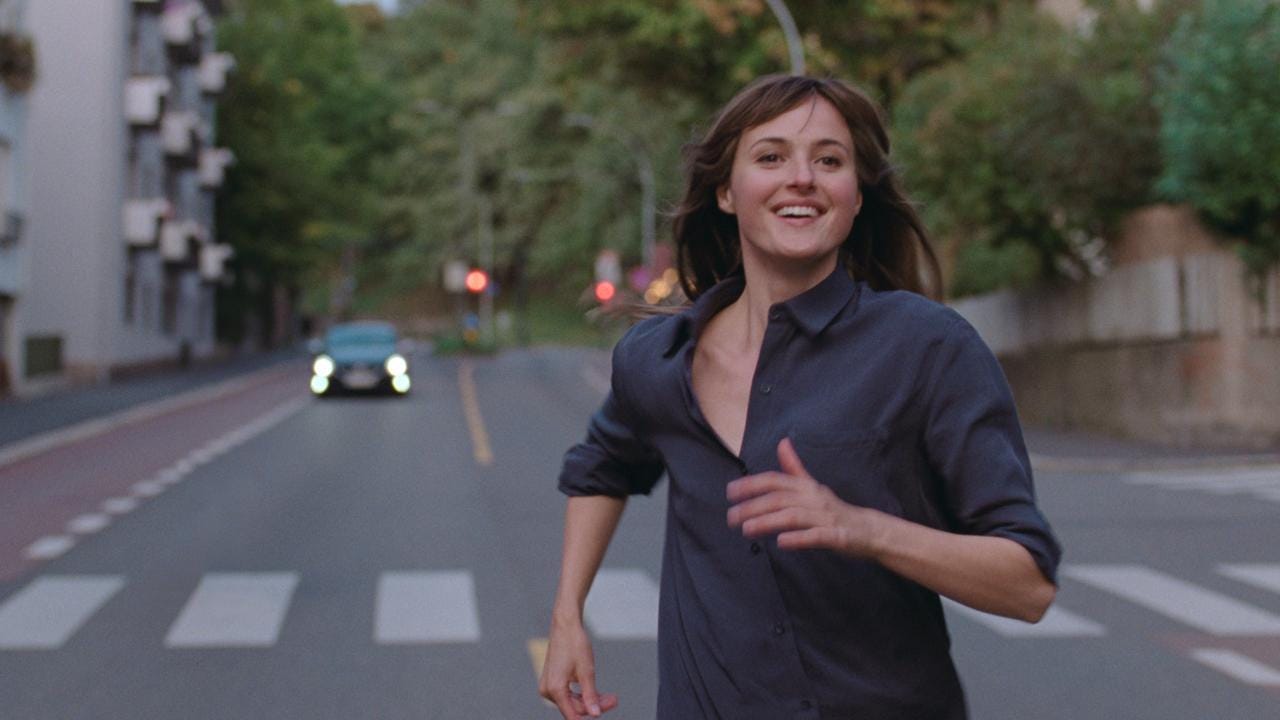
Ultimately, The Worst Person in the World doesn’t offer easy answers, and that’s what makes it so powerful. Julie’s journey isn’t about choosing the right path or making the perfect decision—it’s about learning to live with the uncertainty. That’s the lesson I took from it too. Life is messy, love is complicated, and the process of figuring it out is what makes it meaningful. Maybe the point isn’t to get to a place where everything is resolved, but to accept that it might never be.
In the end, the film doesn’t judge Julie for her indecision, and it’s taught me not to judge myself for mine either. It’s okay to not know if Will is the “right choice”, The One, or if I’ll ever find that same kind of passion I have with Max again. Maybe it’s not about having it all figured out. Maybe it’s about learning to live in the void, accepting that being in this in-between space is part of the process, not a failure.
The void isn’t something to escape from—it’s something to sit with, to understand, maybe even to embrace. It’s where the messy, in-between parts of life coexist with possibility—where not having the answers is just as valid as making decisions.
And maybe that’s okay. Maybe the void that is being in your late twenties isn’t something to fill or to leave behind, but to embrace as part of figuring it out, trusting that clarity will come when it’s ready—if it ever does.
*Names and certain personal, identifying details have been changed to protect the identities of Will and Max.
If you enjoyed this article, please consider subscribing to Anto Aesthetics. Thank you!







